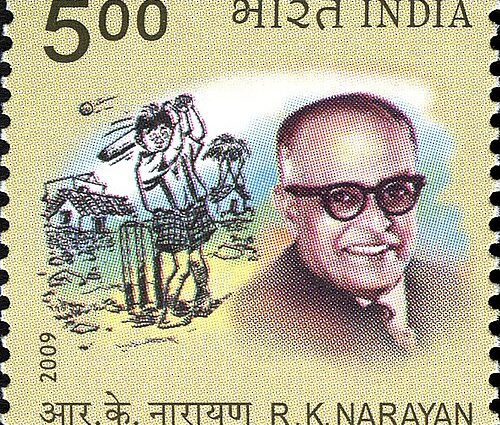Rasipuram Krishnaswami Iyer Narayanaswami, better known as R. K. Narayan (1906–2001), was one of India’s most prominent English-language novelists. Celebrated for his simple yet profound storytelling, Narayan captured the essence of middle-class South Indian life through his fictional town of Malgudi—a setting that became iconic in Indian literature.
Narayan’s literary journey began with Swami and Friends (1935), which introduced readers to Malgudi and established his enduring style: gentle irony, vivid characterization, and a deep empathy for ordinary people. His other notable novels include The Bachelor of Arts, The English Teacher, The Financial Expert, and The Guide, the last of which won him the Sahitya Akademi Award in 1958 and was later adapted into a successful film.
Influenced by British writers like Thomas Hardy, Narayan localized his narratives to depict Indian social customs, family dynamics, and moral dilemmas with subtle humor and realism. Unlike many of his contemporaries, he avoided political themes, focusing instead on individual lives and personal transformation.
Narayan also wrote short stories, essays, travelogues, and memoirs. His works, including collections like Malgudi Days, display his keen observation and mastery over the short fiction form. His style is marked by lucid prose, understated wit, and a strong sense of place and culture.
Recognized globally, R. K. Narayan was nominated to the Rajya Sabha and honored with the Padma Bhushan and Padma Vibhushan. His literary legacy continues to influence generations of Indian writers and remains an enduring part of world literature.
Novels
The Guide
- Character of Raju in R. K. Narayan’s The Guide
- The Character of Rosie in R. K. Narayan’s The Guide
- R. K. Narayan’s The Guide as a Bildungsroman
- The Guide by R.K Narayan – Significance of the title
- Character of Marco in R. K. Narayan’s The Guide
- Description of Mangal in R. K. Narayan’s The Guide
- Significance and Importance of the Railway at Malgudi in R. K. Narayan’s The Guide


